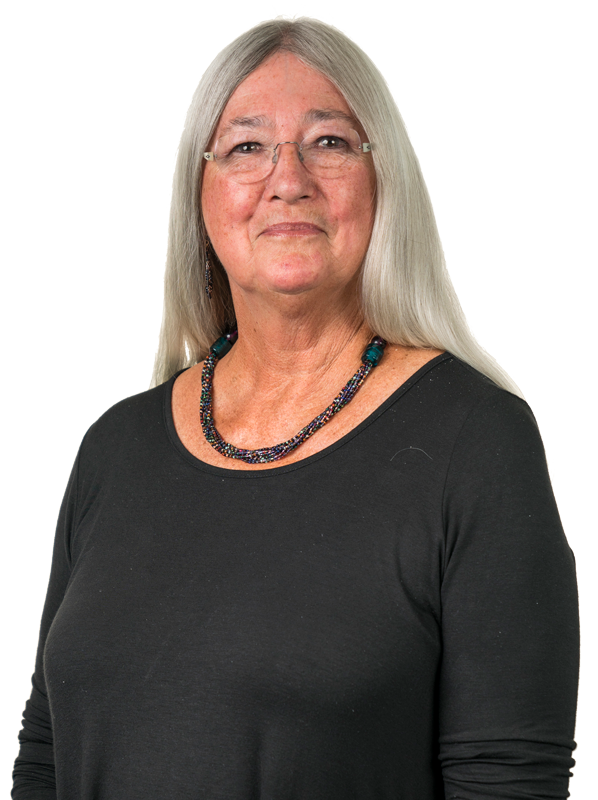The directory allows you to find staff and faculty in the School for Cultural and Social Transformation, whether you a searching for an individual or faculty associated with a specific program.
Division:
Search:

Dr. Ana Carolina Antunes is originally from Rio de Janeiro Brazil, but she has lived in Salt Lake City, UT since 2006. She holds a PhD in Education from the Education, Culture &Society Department at the University of Utah and is an Assistant Professor (Lecturer) in the Division of Gender Studies in the same institution. Dr. Antunes develops participatory projects with young people of refugee and immigrant backgrounds in afterschool settings and it is interested in how racialized and gendered readings of bodies mediates relationships in the educational system.

Elizabeth Archuleta is Associate Chair/Associate Professor (Lecturer) in Ethnic Studies where, in addition to her administrative duties, she teaches American Indian Experiences, American Indian Women, Pacific Island and American Indian Literature, Diversity Scholars, Internship, and Honors Thesis classes. She has publications in peer-reviewed journals on American Indian issues and topics, including American Indian women, American Indian literature, the National Museum of the American Indian, and American Indian history. She has chaired and served on numerous dissertation and MFA committees and has advised McNair Scholars and Honor’s students. As a first-generation student, she supports underrepresented students (through curriculum, teaching, and mentoring) who are learning to navigate higher education.

Dr. Maile Arvin is an associate professor of History and Gender Studies at the University of Utah. She is a Native Hawaiian feminist scholar who works on issues of race, gender, science and colonialism in Hawai‘i and the broader Pacific. At the University of Utah, she is part of the leadership of the Pacific Islands Studies Initiative, which was awarded a Mellon Foundation grant to support ongoing efforts to develop Pacific Islands Studies curriculum, programming and student recruitment and support.
Arvin’s first book, Possessing Polynesians: The Science of Settler Colonial Whiteness in Hawaiʻi and Oceania, was published with Duke University Press in 2019. In that book, she analyzes the nineteenth and early twentieth century history of social scientists declaring Polynesians “almost white.” The book argues that such scientific studies contributed to a settler colonial logic of possession through whiteness. In this logic, Indigenous Polynesians (the people) and Polynesia (the place) became the natural possessions of white settlers, since they reasoned that Europeans and Polynesians shared an ancient ancestry. The book also examines how Polynesians have long challenged this logic in ways that regenerate Indigenous ways of relating to each other. Her work has also been published in the journals Meridians, American Quarterly, Native American and Indigenous Studies, Critical Ethnic Studies, The Scholar & Feminist, and Feminist Formations, as well as on the nonprofit independent news site Truthout.
From 2015-17, Arvin was an assistant professor at the University of California, Riverside, in Ethnic Studies. She earned her PhD in Ethnic Studies from the University of California, San Diego. Her dissertation won the American Studies Association’s Ralph Henry Gabriel prize. She is also a former University of California President’s Postdoctoral Fellow, Charles Eastman Fellow in Native American Studies at Dartmouth College, and Ford Foundation Pre-doctoral Fellow.
Andrea N. Baldwin is an associate professor of Black feminisms in the divisions of gender and ethnic studies in the School for Cultural and Social Transformation at the University of Utah. She completed her doctoral studies at the Institute for Gender and Development Studies Nita Barrow Unit at the University of the West Indies Cave Hill campus Barbados. She is an attorney-at-law who also holds a masters degree in international trade policy. Her research interests include Black, transnational, and Caribbean feminist epistemology, feminist decoloniality, reflexivity in qualitative research, Black women in the academy, theorizing pedagogy as a form of feminist praxis, Caribbean cultural studies and Caribbean women’s migration.
Dr. Baldwin’s publications include her 2022 book monograph A Decolonial Black Feminist Theory of Reading and Shade: Feeling the University published by Routledge; her co-edited 2019 text Standpoints: Black Feminist Knowledges with Virginia Tech Publishing; solo and co-authored articles in Frontiers: A Journal of Women’s Studies, Wagadu: A Journal of Transnational Women’s and Gender Studies, Journal of International Women’s Studies, Theoretical Practice, International Journal for Africana Studies, and Peitho; as well as several edited book chapters. Dr. Baldwin is the creator and co-host of Standpoints, a Black feminist podcast produced by Virginia Tech Publishing, and is also the co-curator of the Caribbean feminist series for Black Women Radicals. She is also co-editor of Global Black Feminism: Cross Border Collaboration Through an Ethics of Care. (New York: Routledge, 2023, with Tonya Haynes) and Black Feminists Theorizing Toward Futurity. (Blacksburg: Virginia Tech Publishing, 2023, with Nana Brantuo).
Dr. Baldwin was born and raised on the small Caribbean island state of Barbados and considers herself an all-around Caribbean woman and loves everything coconut and soca.

Matt Basso is an Associate Professor of History and Gender Studies at the University of Utah. His research interests include public history and histories of the U.S. West, masculinity, labor, racial formations, war and society, and Pacific settler colonialism. He is the author or editor of four books including Meet Joe Copper: Masculinity and Race on Montana’s World War II Home Front (University of Chicago Press, 2013), winner of the Philip Taft Labor History Book Award and the American Historical Association’s Pacific Coast Branch Book Award, and a K-12 textbook entitled We Shall Remain: A Native History of Utah and America (American West Center, 2009), part of the Utah American Indian Curriculum Project for which he served as PI and which won the Western History Association’s Autry Public History Prize, the American Association of State and Local History’s Award of Merit, and National Council on Public History’s Project of the Year – Honorable Mention. His most recent articles appear in Settler Colonial Studies, Journal of the West, and Frontiers, and consider industrial settler masculinity, the Popular Front resonances in Buffalo Bill(1944), and soccer, masculinity, and neoliberalism in Mexico respectively. He is currently working on two scholarly projects: a new history of the World War II home front for the National Park Service, which includes training undergraduate and graduate students in public history methods, and a book that uses New Zealand history as a case study to consider settler masculinity through the lens of work and war.

Melanie Puka Bean is an assistant professor of Ethnic and Gender Studies at the University of Utah where she is part of Pacific Islands Studies. Melanie is a New Zealand-born Tagata Tokelau (person of Tokelau descent), Tagata Samoa (person of Samoan descent). A native feminist scholar who writes about migration and diaspora of Tagata Tokelau and Pacific peoples more broadly, she earned her Ph.D. in Geography from Louisiana State University. Her current book project is about the Tokelau diaspora in Aotearoa New Zealand and Hawai’i.
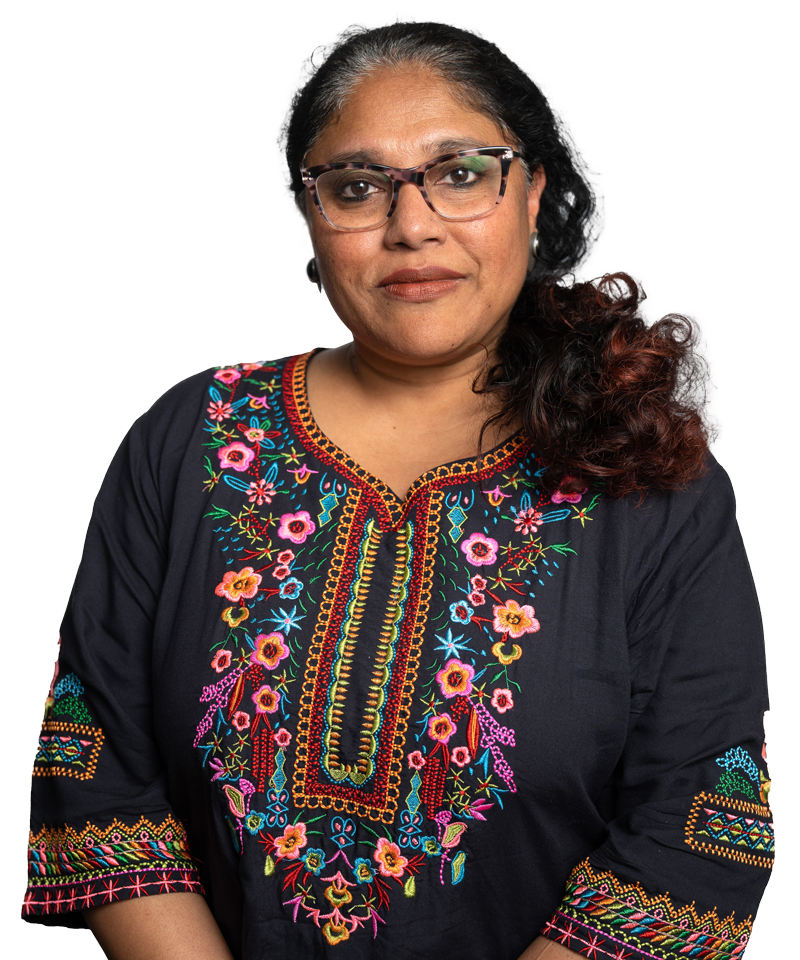
Dr. Debjani Chakravarty is an interdisciplinary scholar with expertise in sociology, gender studies, media studies, and religious studies. Dr. Chakravarty’s research and teaching interests include globalization, nation, and labor; feminist pedagogy and epistemology; feminist and critical theory; gendered new media; issues of gender, sexuality, religiosity, race, and class within citizenship/belonging. Her academic and activist work is guided by antiracist and anticolonial praxis. She has previously worked as a journalist and social worker in India; as award-winning faculty in several universities in the US, and has published academic and artistic works exploring the topic of transnational feminisms, collaborative research ethics, new media representation, sexualities, and epistemic justice. Dr. Chakravarty’s latest research can be found in the journals Sexuality and Culture, Equity and Excellence in Education, and Social & Cultural Geography. She is currently working on a project that explores the meaning and implications of gendered invisible labor.

Jaimie D. Crumley is an Assistant Professor of Gender Studies and Ethnic Studies. She is a Black feminist historian whose research and writing broadly cover the history of race, gender, and religion in the Northeastern United States. The courses she teaches include Black feminism(s), Feminist Archival Methods, Black American Women’s History, and Abolitionist Feminism(s). She has worked as a public historian in New England, giving public lectures about topics including feminist anti-slavery work, teaching inclusive histories, and Black and Indigenous religious history. Her current book project is about Black Christian feminist political organizing in the Northeastern United States from 1770-1870.

David De Micheli is Assistant Professor of Political Science and Ethnic Studies. De Micheli’s research interests include ethnic and identity politics, inequality, and citizenship with a regional focus on Latin America. His current book project examines state-led educational expansion as a cause of shifting patterns of racial identification in Brazil. This project is based on his doctoral dissertation, which was awarded the best dissertation prize from the Race and Ethnic Politics section of the American Political Science Association. You can find his research published in World Politics and Latin American Politics and Society. De Micheli teaches courses on comparative politics, identity politics, and race and ethnicity in Latin America, among others.
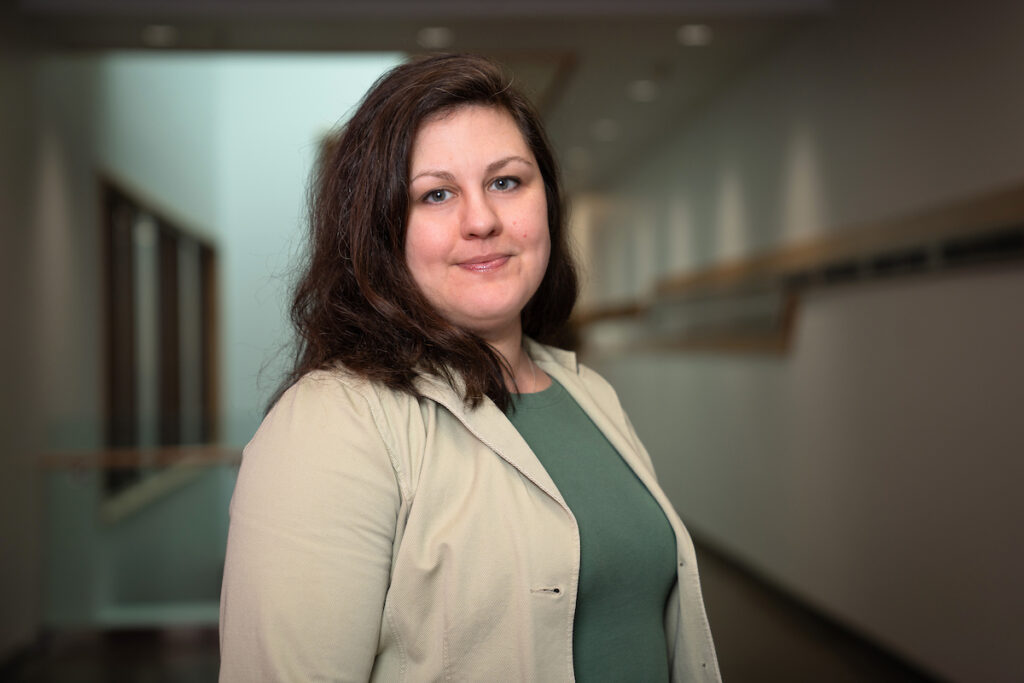
Dr. Lynn Deboeck is an Associate Professor Lecturer of theatre and gender studies at the University of Utah. She earned her PhD in Theatre and a Graduate Certificate in Women, Gender & Sexuality Studies from the University of Kansas. Her research interests include reproductive women on stage, gender and representation in performance, pedagogy in higher education and feminist theatre. She is also a theatre director with a 18-year record, including mostly plays written by women.
In her directing pursuits, she most recently directed “Helen,” by Euripedes at the 50th anniversary of Salt Lake City’s Classical Greek Theatre Festival. She also had her original play “Lynchpin” (a play about the life of Ida B. Wells) performed at the 2019 Edward Lewis Festival. Her most recent scholarly publications include “Feminist Resistance to the Coded-Male Auteur-Director,” an article in Frontiers: A Journal of Women’s Studies and “The Culinary Coding of Gender Construction: Simplicity Rhetoric in Cookbooks from the Little Blue Book Series,” an article in antae: A Journal on the Interspaces of English Studies.

Lisa M. Diamond’s research focuses on the development and expression of sexual and gender diversity over the life course, and on the biological mechanisms through which sexual and gender stigma influence physical and mental health. She also studies the couple and family relationships of sexually-diverse and gender-diverse individuals across the life course.

Edmund Fong is an associate professor in the Department of Political Science and the Division of Ethnic Studies. Additionally, he currently serves as the chair of Ethnic Studies. His research interests lie in examining the constitutive role of racial politics in the development of American political culture and American political institutions. He has published in journals and anthologies such as Political Research Quarterly, Politics, Groups, and Identities, and the Oxford Handbook of Racial and Ethnic Politics in the U.S. His book, American Exceptionalism and the Remains of Race: Multicultural Exorcisms was published in July 2014 by Routledge Press through their Routledge Series on Identity Politics. He is currently working on a new book on how we tell time through race in American politics. He teaches broadly in the fields of political science and ethnic studies, from courses on the American presidency to racial/ethnic politics to seminars on politics & literature.

Lezlie Frye is an Assistant Professor of Gender Studies in the School for Cultural and Social Transformation. Her research concentrates on the cultural history of disability, race, and gender in the United States since the 1970s, with a particular emphasis on histories of state violence, citizenship, and social movements. Lezlie received her Ph.D. in 2016 from the American Studies Program, Department of Social at Cultural Analysis, at New York University and was the 2014-15 Predoctoral Research Fellow in the Fisher Center for Gender Studies at Hobart and William Smith Colleges. She is currently working on a manuscript entitled Domesticating Disability: Post-Civil Rights Racial Disenfranchisement and the Birth of the Disabled Citizen. Lezlie’s academic work is preceded by over a decade of popular education, activism, and organizing work that coheres around disability, racial, and economic justice.

Dr. Annie Isabel Fukushima is associate dean of Undergraduate Studies, director of the Office of Undergraduate Research, and associate professor in the Division of Ethnic Studies, and author of Migrant Crossings: Witnessing Human Trafficking in the US(Stanford University Press, 2019), which examines the experiences and representations of Asian and Latina/o migrants trafficked in the United States into informal economies and service industries.
As an interdisciplinary scholar, she committed to praxis, therefore she has worked at all levels of organizations, where her expertise is nationally recognized; she has served as an expert witness for human trafficking cases in courts in California, Colorado, and Utah, provided expert reports for immigration cases submitted to USCIS, and a consultant for national and local organizations in California and Washington. She has authored multiple community-based studies that focus on domestic violence, sexual assault, human trafficking, labor, and migration.
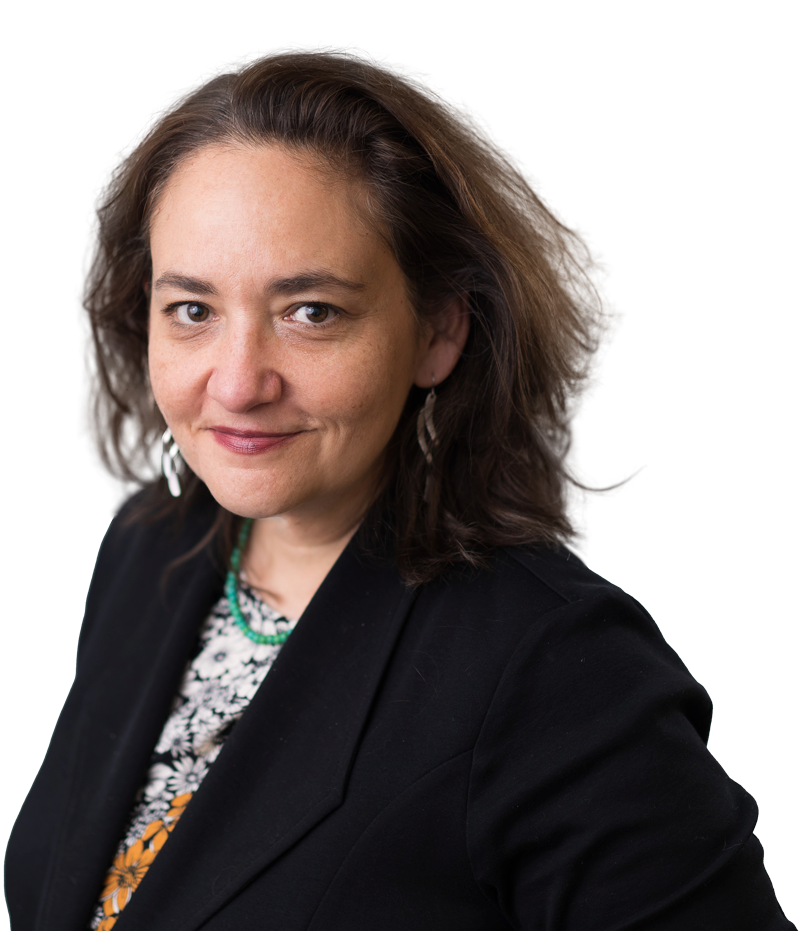
Sarita Gaytán is jointly appointed in Sociology and Gender Studies. Her research interests include culture, consumption, globalization, national identity, political economy, and the environment. Her work has been published in Social Problems, Journal of Consumer Culture, Feminist Formations, Latino Studies, Environment and Planning A, and Ethnicities. Her book, ¡Tequila! Distilling the Spirit of Mexico (2014) was published by Stanford University Press.
Sarita’s courses include Race, Gender, and Popular Culture, Men of Color Masculinities, Gender and Contemporary Issues, and Gender and Power in Latin America.

Claudia Geist (she/her) is an associate professor in the Department of Sociology and the Division of Gender Studies, where she serves as the interim chair. She studies inequality in many forms, both in the United States and with a comparative perspective, to understand the theoretical connections between gendered institutions, social context, and behavior. Her recent work examines the gendered division of labor, contraception and pregnancy intentions, as well as theoretical and measurement approaches to gender, sexuality and family.

Alborz Ghandehari is an Assistant Professor of Ethnic Studies. His research centers social movements in Iran and Southwest Asia/North Africa (the Middle East), as well as movements in the region’s diasporas. His forthcoming book, Post/Revolutionary Conditions: Renewed Hopes of the Iranian Freedom Struggle brings together oral histories among grassroots organizers across Iran’s contemporary labor, feminist, and student, movements with resistance literature and art, to explore the struggle for freedom in Iran and its solidarities with working-class and oppressed people’s movements worldwide. A second research area for Dr. Ghandehari centers around migrant justice struggles transnationally. Some of his publications appear in Social Identities, Journal of Middle East Women’s Studies, Critical Ethnic Studies Journal, Frontiers: A Journal of Women Studies, Jadaliyya, and In These Times. Alborz is also the Instructional Coordinator of the Diversity Scholars program, a cohort program to support first-generation college students and students of color at the University of Utah.

Erin Graham is an Associate Professor (Career-Line Teaching Faculty) in Ethnic Studies and Gender Studies, and she is the Associate Chair for the Division of Gender Studies. Her wide-ranging teaching experience has included courses in Chicano/Latino Studies, Gender Studies, History, and Interdisciplinary Social Science and Humanities courses. She is passionate about pedagogy, and she delights in welcoming students from all different disciplinary backgrounds into her courses. Her teaching is informed by her research background in Latin American, Mexican, and Borderlands History, in which she focuses on gender, childhood, family, labor, migration, and environmental justice. Dr. Graham is also a dedicated and strong community engaged scholar and organizer.

Dr. Kim Hackford-Peer (she/they) is an Associate Professor (Career Line Teaching Faculty) in the Division of Gender Studies. Kim’s teaching career began in first grade when she and her best friend taught their classmates all about teeter-totter safety – Gender Studies is glad she has expanded her areas of interest! Now Kim teaches classes (many of which carry general education designations) that focus on queer studies, representation, and pedagogy. Kim partners with the Salt Lake Center for Science Education where undergraduate interns mentor high school students and teach them about queer history and activism. Kim also works with undergraduate students who are interested in developing skills used to design and implement curriculum in high school and university settings. Kim was recognized with the Distinguished Teaching Award at the University of Utah for 2020-21 and was a recipient of the national LGBTQ Point Foundation Flagship Scholarship from 2007-2010. Kim’s research interests coincide with their teaching practices; they are deeply interested in pedagogy, particularly as it relates to the ways that identity and education intersect.
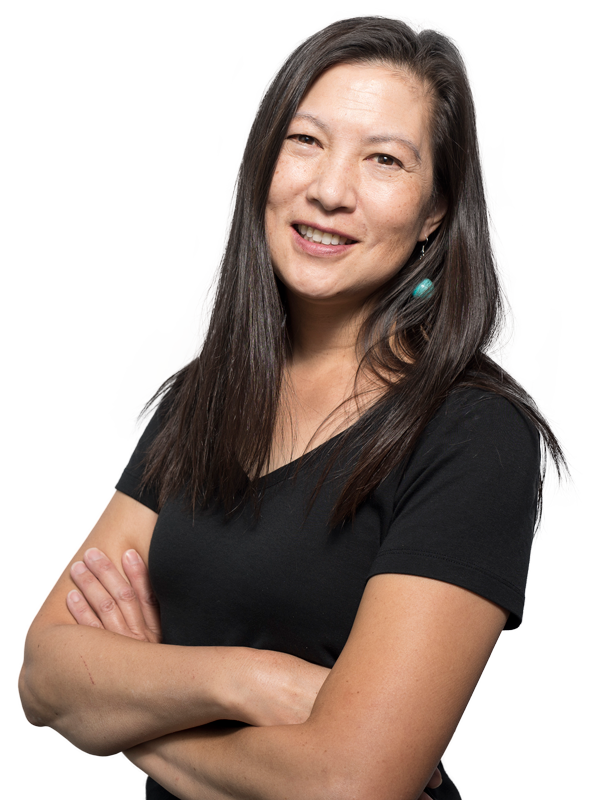
Kimberly Jew holds a joint appointment in Theatre and Ethnic Studies. She teaches a wide range of topics ranging from Asian American and Pacific Islander studies, to theatre history, dramatic literature, and script analysis. Her expertise lies in 20th century American theatre. She has directed numerous university productions and has composed and edited a collaborative performance project based on local letters to the editor. Dr. Jew has written on a variety of topics, exploring the intersections of feminism, postcolonialism, theatrical experimentation and ethnic identity. Her essays can be found in the journals of Pacific Asia Inquiry, MELUS, and in the edited collections, Literary Gestures (Temple University), and Seeking Home (University of Tennessee Press), to name a few. She is currently co-editor of Frontiers, a Women Studies Journal. Dr. Jew received her doctorate from New York University, master’s from Georgetown University and bachelor’s from UC Berkeley.

Elizabeth Kronk Warner is the acting dean at the School for Cultural and Social Transformation and the Jefferson B. & Rita E. Fordham Presidential Dean and Professor of Law at the S.J. Quinney College of Law at the University of Utah.
Dean Kronk Warner is a nationally recognized expert in the intersection of environmental and Indian law. She has taught courses in property, Indian, environmental and natural resources Law, and supervised the Tribal Judicial Support Clinic at the University of Kansas School of Law. She also teaches and coaches several moot court competition teams. She has received several teaching excellence awards, co-authored several books on environmental issues and Native Americans, and has over 40 articles and book chapters to her credit. Dean Kronk Warner, a citizen of the Sault Ste. Marie Tribe of Chippewa Indians, served as an appellate judge for the Tribe and as a district judge for the Prairie Band Potawatomi Tribe.
Dean Kronk Warner actively engages in activities related to legal education and the profession nationally. She currently serves as chair of the AALS Deans Steering Committee, chair of the AALS Membership Review Committee, and co-chair of the 2023 ABA New Deans Workshop. She serves as a trustee on the LSAC Board of Trustees, as well as on the LSAC DEI and audit committees. As dean, she also has the privilege of serving as an ex officio member of the Utah Bar Commission. She previously was an active member of the Federal Bar Association, serving on its national Board of Directors. In 2014, she received the Federal Bar Association President’s Award for leadership and extraordinary service, commitment, and guidance to the Federal Bar Association and its members. She holds a J.D. from the University of Michigan, a B.S. from Cornell University, and also studied at Nanyang Technological University in Singapore.

